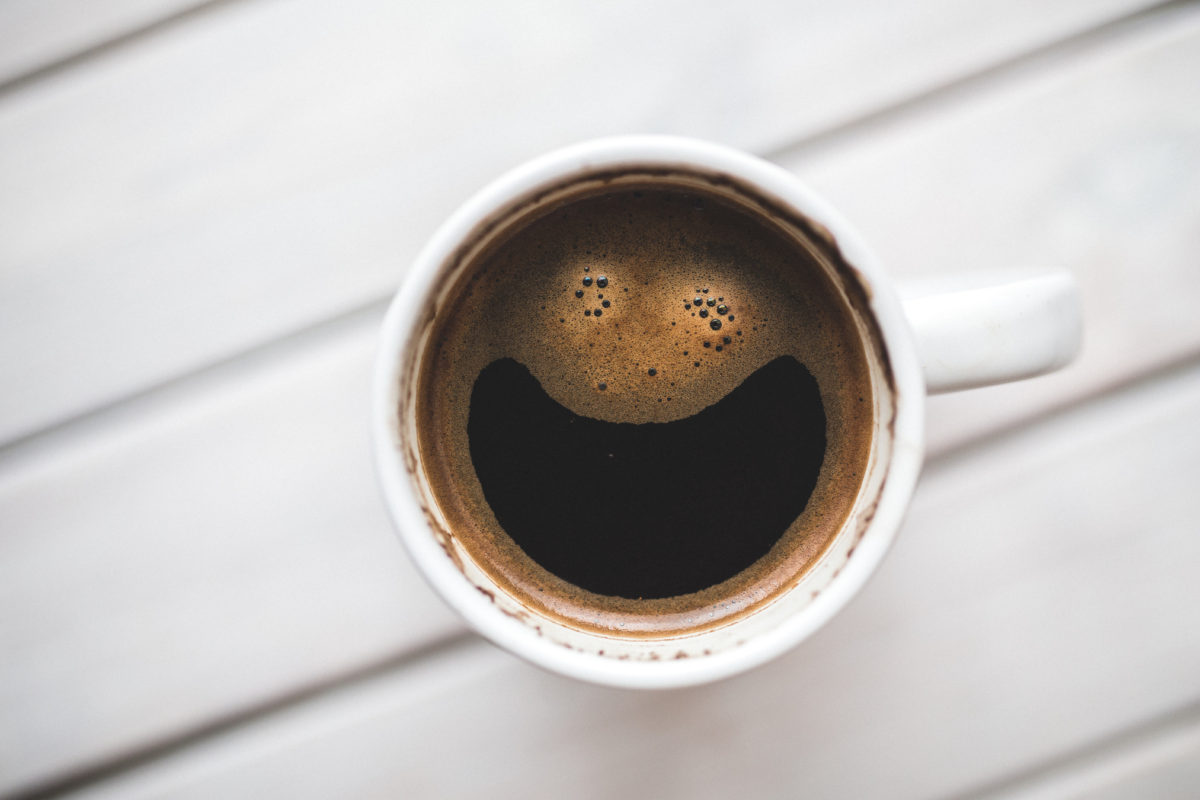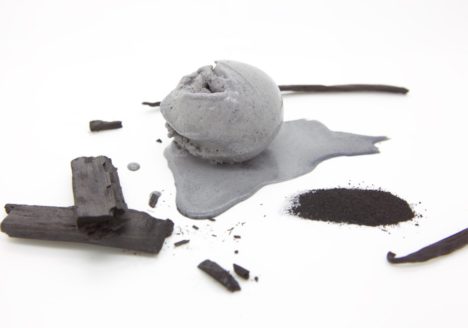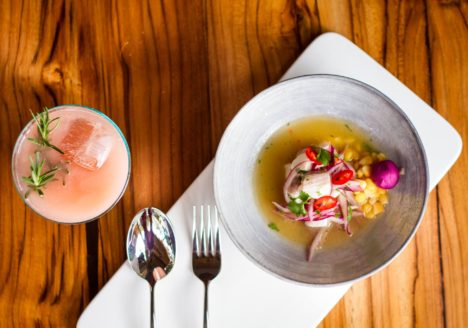A Toast to Ubud’s Best Roast
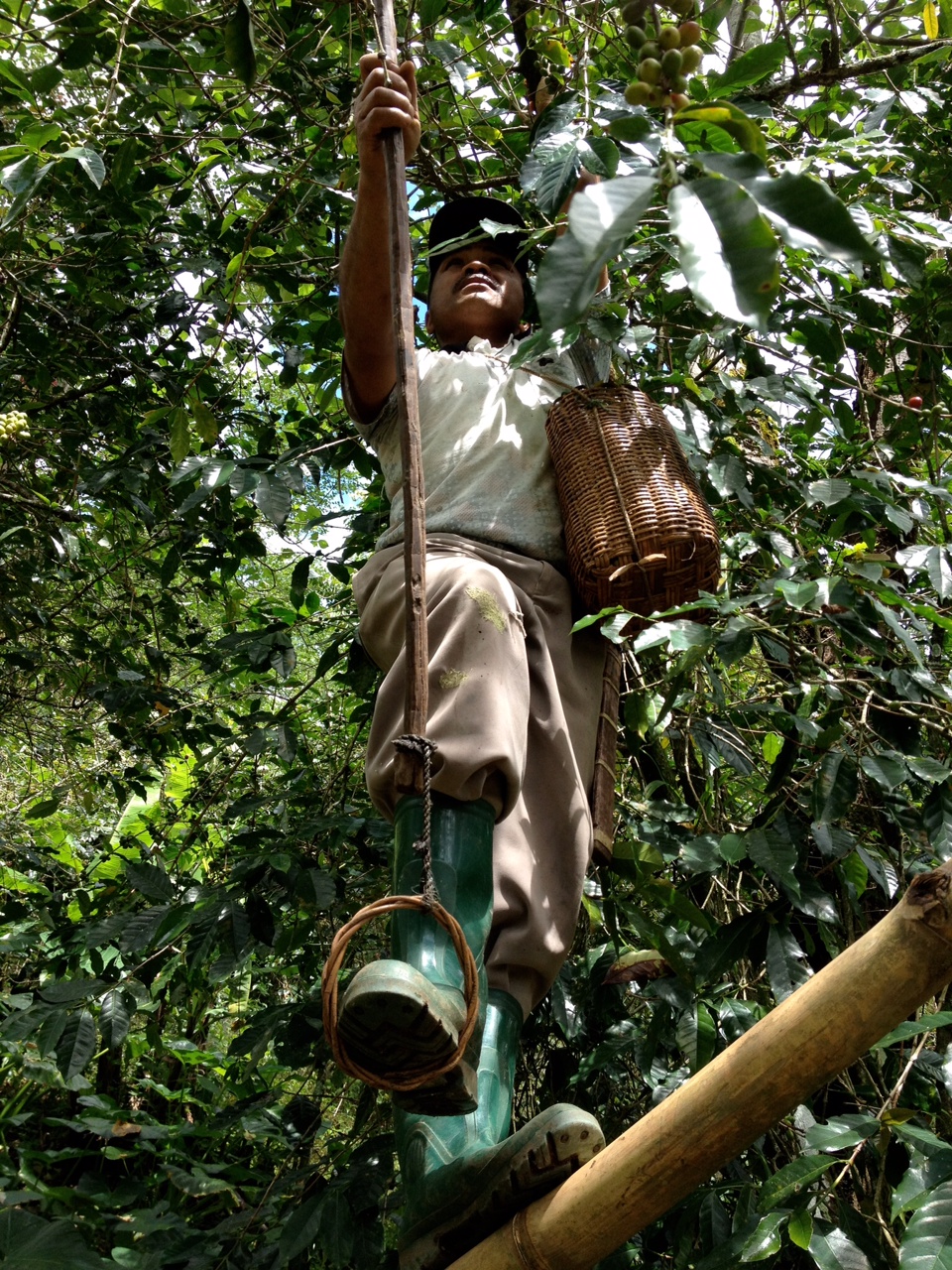
A freshly brewed cup of coffee is more than just a daily pleasure, it’s a way of life. And the art of drinking coffee is just as important as the science of brewing the perfect cup. Coffee is a powerful and complex stimulant that continues to play an integral role in our political, social, economic and environmental development. Some even claim that it’s a character-defining beverage: you are what you drink.
In Bali, Ubud’s thriving café culture is extensive. Mom-and-pop coffee shops and specialty roasters offer tantalising signature house blends and single origins, encouraging us to be adventurous with their tales of exotic, far-flung cherries and indigenous beans.
Follow my coffee chronicles as I sip my way around town and spill the beans on the best little-known artisan coffees in Ubud.
Juria House (Jalan Sugriwa 5) is an unexpected hole-in-the-wall coffee corner in Ubud, quietly steeping the world’s rarest high-grade Arabica from a very special single variety coffee grown in Flores. These coffee trees are descendants of an old, rare Typica species of Arabica coffee of Ethiopian origin, and are survivors of the coffee rust epidemics. They were hidden deep in the mountains of Manggarai for over 60 years, until being recently rediscovered and resurrected.
Juria coffee has a strong, aromatic body, intricate layers of sweet tropical flavours, subtle spice notes, a lingering finish and a fascinating story to boot. Join the noble quest to save the remaining old Typica trees and preserve Juria’s lineage. For more information, follow the Facebook pages: Save the Old Coffee Trees and Juria Coffee.
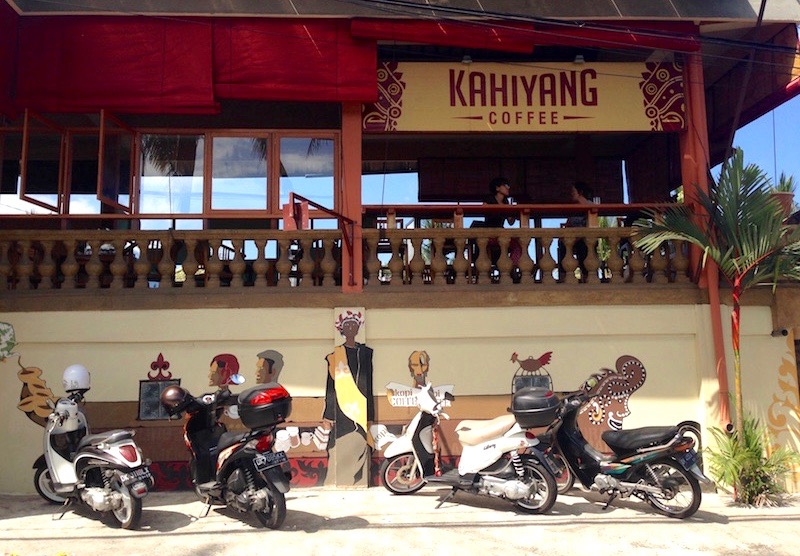
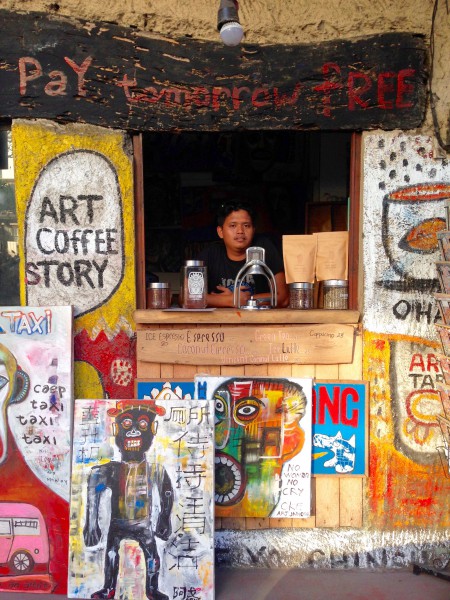
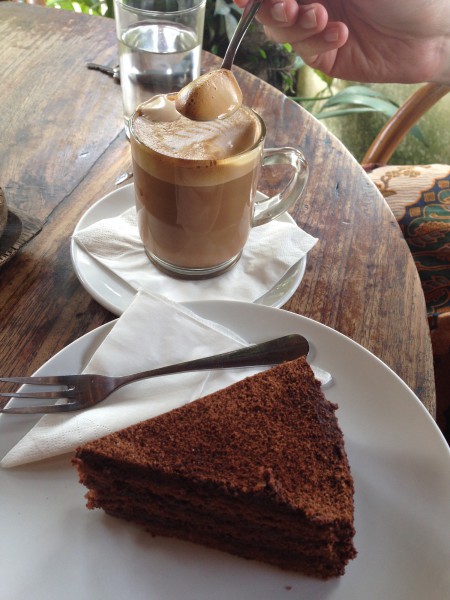
Meet Sumatran-born Iwan Raus, a passionate coffee roaster and owner of Kahiyang Coffee (Jalan Sri Wedari 6), who also has a penchant for storytelling. Raus firmly believes that there is a different coffee for each day. Choose from Kahiyang’s locally sourced Fair Trade Arabica coffee beans (20 per cent of Kahiyang’s profits goes to the farmers), Bali’s Kintamani, Java’s Prianger and Papua’s Wamena. Asep, the self-dubbed “YouTube Barista”, will brew you a fresh, customised coffee to match your mood on any day.
Kahiyang’s coffee beans are roasted in-house every morning. Early risers are invited to a free roasting lesson. Kahiyang Coffee is one of those hidden spots you are reluctant to tell others about. There are no tourists, hipsters, spiritual seekers and Wi-Fi freeloaders here. We are safe, for now.
A little tip from an insider: Kahiyang also supplies coffee beans to Ubud’s only drive-thru coffee-stand/art-gallery on Jalan Hanoman. It’s cheekily concealed with the resident artist’s vibrant paintings.
Café Vespa
Wake up and catch the arresting smell of coffee wafting from Cafe Vespa (Jalan Raya Penestanan Kaja), a popular expat hangout serving some of Ubud’s best coffees and food. Owner Neil is proud of his artisan coffee, and rightfully so, since he’s mastered the perfect blend using 100 per cent Arabica coffee sourced from Toraja in Sulawesi, Gayo in Aceh, and Kintamani in Bali. The beans are roasted weekly according to Neil’s strict standards and are ground fresh before serving.
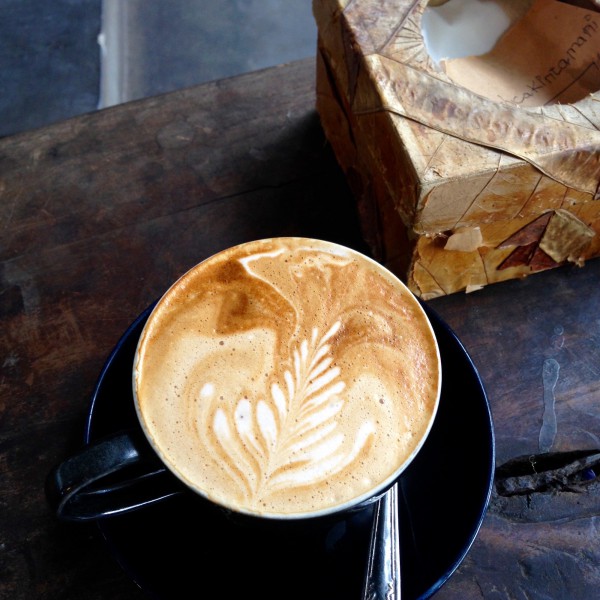
Pair Vespa’s exquisite espresso with the best-selling Spinach and Mushroom for a wholesome breakfast. Spy on wacky post-modern hippy fashion and eavesdrop on the most bizarre conversations in town.
Blink and you might miss inconspicuous F.R.E.A.K. Coffee (Jalan Hanoman 19). The quirky name is an acronym of Fresh Roasted “Enak” (delicious in Indonesian) Arabica from Kintamani. F.R.E.A.K Coffee’s philosophy is “from the cherries to the cup”, and 100-per-cent organically grown Arabica from Kintamani is roasted fresh daily and served within 24 hours at the café.
The café boasts an extensive coffee menu and small bites (mostly organic, raw and vegan) catering to discerning coffee freaks and health nuts. Mingle with F.R.E.A.K.’s cult following–-dreadlocked locals, glowing yogis and effete hipsters–-as you sip and watch the town go by.
A few steps away from the gridlocked Ubud Palace intersection, the Rio Helmi Gallery & Cafe (Jalan Suweta 24A) is a cool respite from the throngs of tourists and their selfie sticks.
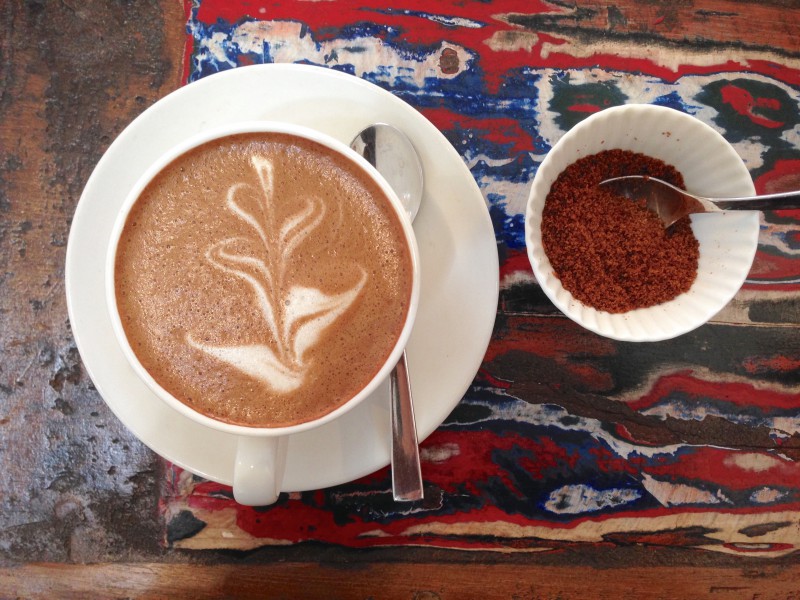
Rio Helmi, the articulate owner/photographer, is very particular about his coffee. His signature blend comes from Aceh, Bali and Brazil. Try the rich caffè mocha, available upon request, which packs enough punch to jumpstart the grouchiest customer. A sprinkle of paprika and salt is added for depth, I later discovered.
This bright air-conditioned café also offers an all-day Mediterranean-inspired breakfast and brunch menu (I recommend the shakshouka). Come for the smooth lattes and hearty food and enjoy Rio’s captured memories across Asia.
Strategically located in central Ubud, Casa Luna (Jalan Raya Ubud) was started more than 20 years ago by Australian writer/restaurateur/wonder woman and founder of the Ubud Writers & Readers Festival and the Ubud Food Festival, Janet DeNeefe.
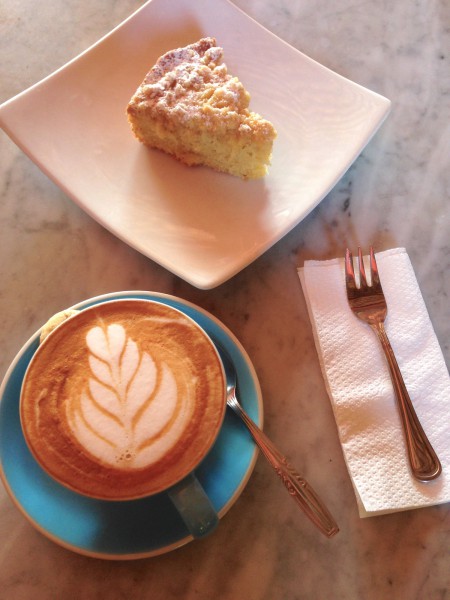
The full-bodied house blend, brewed using 100-per-cent premium Indonesian beans, is earthy and velvety smooth. Ask Made Taman to whip up the legendary cappuccino and order a slice of cake from the Honeymoon Bakery – best savoured while people-watching from the comfort of your front-row seat.
Petani Restaurant (Alaya Ubud, Jalan Hanoman) boasts single-origin beans from Aromanis, Enrekang in Toraja and Singaraja in Bali, which are processed using the extravagant La Marzocco FB/70.
Sometimes you just want a cup of latte art to show off on social media. Petani’s talented baristas think outside the cup when it comes to their coffee art, be it the Coconut Flakes Cappuccino, Red Velvet Latte, Salted Caramel Cappuccino or Matcha Latte. Bring your friends and have a leisurely latte-tasting afternoon.
Kopi Luwak: Cut the Crap!
Indonesia’s kopi luwak, or civet coffee, is the world’s priciest and most controversial coffee. These unusual beans are collected from the excrement of wild luwak, or Asian palm civets, after having passed through the animals’ digestive tracts. The result is a smooth, earthy brew.
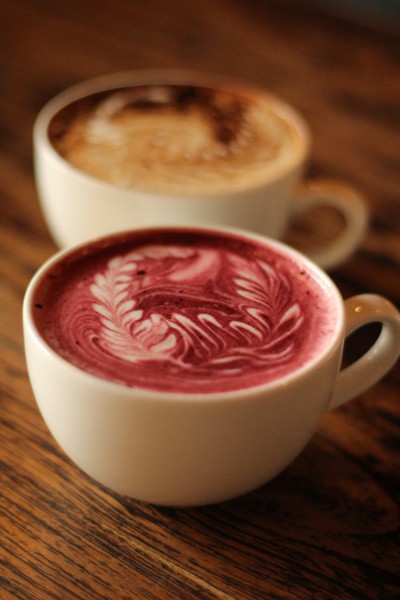
The escalating global demand for these highly prized (and hyped) beans has resulted in the widespread illegal trapping and force-feeding of these wild civets. The only way to ensure that the beans are genuine and harvested ethically is to follow the farmers and civets around in the forest all night. I say cut the crap and leave those civets alone. Honestly, the taste does not justify the animal cruelty.
Dos:
- Buy fresh whole coffee beans (not grounds) from a reputable local roaster and use within a week. Store it in a dark, airtight container at room temperature and grind your beans right before you brew them.
- Invest in good coffee grinding and brewing equipment and regulate the grind size according to the brewing method. Use filtered water and keep the temperature between 195°F (91°C) to 205°F (96°C). Clean your coffee equipment thoroughly after each use.
- Develop your palate; start by drinking unadulterated coffee. Additions such as sugar, milk and flavourings affect the texture and aroma of coffees, tainting the actual taste.
Don’ts:
- Ask for your coffee to go and rush around town holding it. Take the time to sit down and appreciate your fresh brew. It’s worth it.
- Buy poorly packaged coffee beans or grounds. Check for scratches or tears in the packaging. If air gets into the bag, the coffee will go stale immediately. Ground coffee should have a valve in the bag to let air out.
- Let coffee snobs get to you. Whether you are a slow-sipping espresso connoisseur or a morning java gulper, all that matters is your own personal preference.
Notes:
This article was published in hellobali — November 2015.
Photos by Meliana Salim unless otherwise stated.

